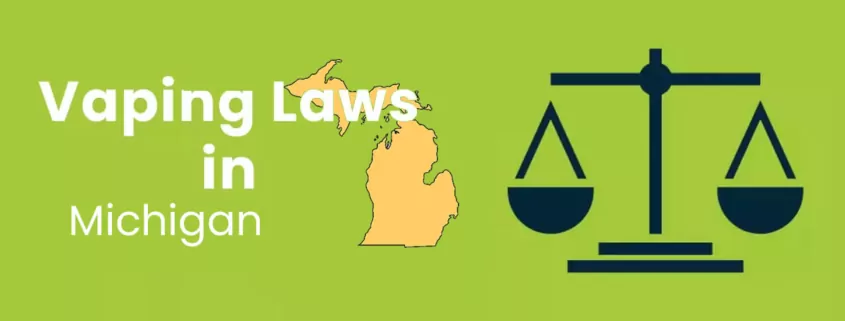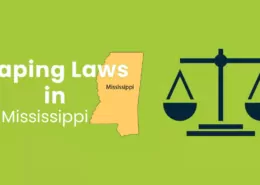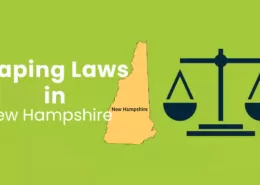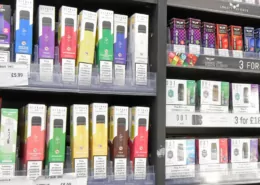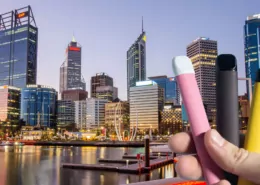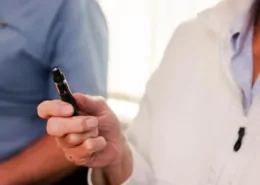Vaping Laws in Michigan – Age, Sales, Tax & Rules Guide
Michigan’s approach to regulating vaping products, including e-cigarettes, vape pens, and e-liquids, presents a complex and evolving legal landscape. The state has implemented a series of laws under its Youth Tobacco Act, most recently amended by Public Act 167 of 2022, to address public health concerns, particularly the prevention of youth access to nicotine. Unlike some states with sweeping prohibitions, Michigan’s framework is characterized by strict age controls, significant new taxation policies, and a notable distinction between statewide and local regulations on public use.
As of 2025, with major legislative proposals for licensing and flavor bans under ongoing debate, it is crucial for consumers, retailers, and manufacturers to have a clear understanding of the current rules. This guide provides an in-depth look at Michigan’s vaping laws, incorporating the latest legislative updates and authoritative sources to ensure you can navigate this environment with confidence and compliance.
The Legal Foundation of Vaping Laws in Michigan
At the core of Michigan’s vaping regulations is a firm stance on preventing youth access, supported by both state and federal law, alongside specific definitions that categorize these products for regulatory purposes.
Defining “Vapor Product”
Michigan law provides a broad definition to ensure comprehensive regulatory coverage. A “vapor product” is defined as any noncombustible device that employs a heating element, power source, electronic circuit, or other means to produce a vapor from a nicotine solution or other substance for inhalation. This definition encompasses devices regardless of their shape or size, including e-cigarettes, e-cigars, e-pipes, and vape pens.
Minimum Legal Sales Age: Strictly 21
Michigan rigidly enforces a minimum legal sales age of 21 for all tobacco and vapor products. This “Tobacco 21” standard, which became fully effective following the passage of Michigan Public Act 167 of 2022, aligns the state with federal legislation. It is illegal for any person to sell, give, or furnish a vapor product or alternative nicotine product to a minor (defined as an individual under 21 years of age).
Retailers are legally mandated to verify the age of any purchaser who appears to be under 27 years old by checking a valid government-issued photographic identification. For online and remote sales, this verification must be performed by an independent, third-party service that compares information against commercially available databases.
Penalties for minors (under 18) found purchasing, possessing, or using vaping products in public escalate with repeat offenses, starting with a state civil infraction and a fine of up to $50 and potentially community service, and escalating to a misdemeanor for a third or subsequent violation.

Where Vaping is Prohibited in Michigan
One of the most important and often misunderstood aspects of Michigan’s vaping laws is the regulation of public use. A critical distinction exists between state law and the authority of local municipalities.
The Michigan Smoke-Free Air Law and Vaping
Michigan’s statewide Smoke-Free Indoor Air Law (Public Act 188 of 2009), which prohibits smoking in most public places and places of employment, including restaurants and bars, does NOT explicitly include vaping products. This means there is no comprehensive statewide ban that automatically prohibits vaping in all the same places where smoking is banned. This is a significant difference from many other states.
However, state law does prohibit vaping in specific, sensitive locations:
- Child care centers, including properties and vehicles used for child care transport.
- The Third Judicial Circuit Court facilities.
- Streetcars and street railway stations.
- Public schools, which are required to have policies prohibiting tobacco and vape use on their grounds and at school-sponsored events.
Local Ordinances
Because the state’s Smoke-Free Air Law does not cover vaping, local municipalities and counties have the authority to enact their own, often stricter, ordinances. This has created a patchwork of regulations across Michigan. Many communities have passed local laws that do prohibit vaping wherever smoking is banned. Confirmed municipalities with such comprehensive public vaping restrictions include:
- East Lansing
- Marquette County
- Washtenaw County (including Ann Arbor)
In contrast, major cities like Detroit and Grand Rapids have not enacted additional municipal vaping ordinances beyond state requirements, meaning vaping may be permitted in some indoor public places (like bars or restaurants) at the discretion of the business owner. The key takeaway for vapers is to always look for local signage and assume vaping is not permitted indoors unless the establishment explicitly allows it.
Ecigator is one of the well-known vape brands spun off from FM Technology Co., Ltd, it’s an ISO-certified disposable vape manufacturer for OEMs, ODMs, and OBM since 2010. The founder team comes from top firms with more than 10 years of experience in the vaping industry and has devoted thousands of hours to providing users with a better and better experience.
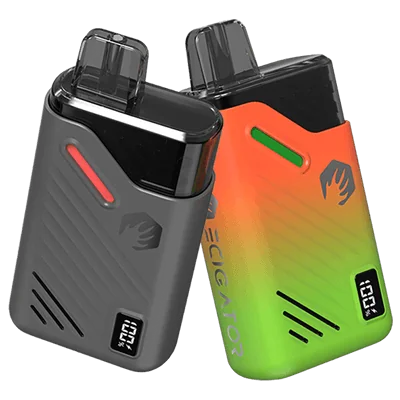
18K Disposable Pod Kit
Disposable Pod Kit – 18ml changeable pod with 650mAh rechargeable battery.
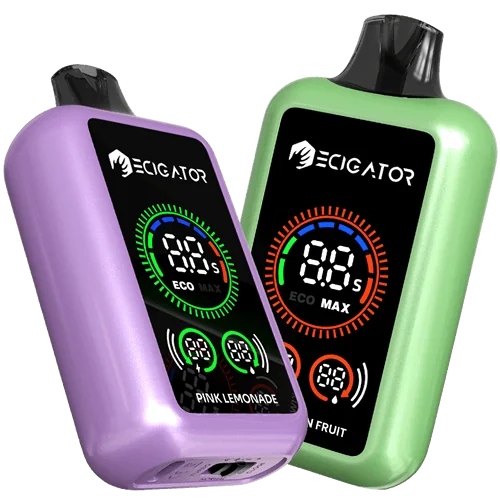
20K with Large Screen
20000 Puffs Disposable Vape with large screen. Normal and Boost working modes.
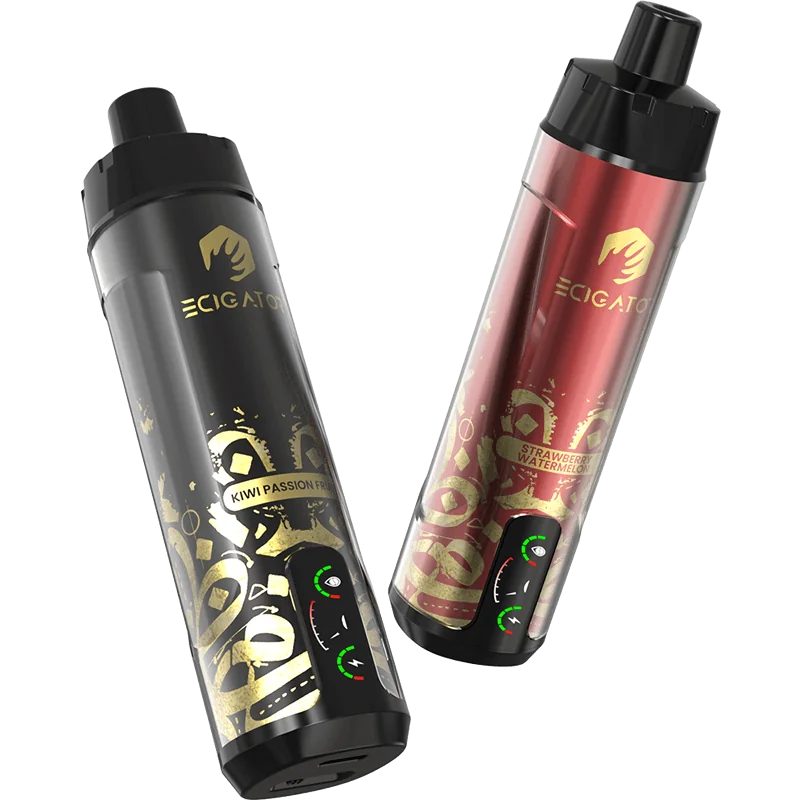
20K DTL Disposable
20K Puffs DTL(Directly to Lung) disposable vape with airflow control and screen.
Selling Vaping Products in Michigan
The sale and distribution of vaping products in Michigan are governed by specific rules, though the state’s approach to licensing has been a subject of recent legislative debate.
Retailer Licensing: A State of Transition
Michigan is unique in that it does not require a specialized state-level retail license specifically for businesses selling only vaping products. Retailers typically operate under standard business registrations and sales tax permits. This differs significantly from traditional tobacco products, which fall under the more comprehensive Michigan Tobacco Products Tax Act licensing framework.
However, this is a major area of proposed change. A package of bills introduced in the 2024-2025 legislative session (Senate Bills 651–654) seeks to establish a comprehensive licensing system for vape retailers. If passed, these bills would introduce requirements such as:
- A $500 annual retail license fee for all vaping product retailers.
- Minimum net worth requirements of $25,000.
- A requirement to own or lease a secure non-residential facility.
This proposed system would significantly increase regulatory oversight and costs for vape retailers in the state.
Sales Practices and Product Requirements
- No Self-Service Displays: Self-service displays of vapor products are prohibited except in tobacco specialty stores or other locations that are physically inaccessible to individuals under 21.
- Child-Resistant Packaging: Liquid nicotine containers sold in Michigan must be in child-resistant packaging, unless they are prefilled, sealed, and not intended to be opened by the consumer.
- Required Signage: All retailers must post signs near the point of sale stating that the purchase of vapor products by minors under 21 is illegal. The law specifies the size and placement of these signs.
- Online Sales and Shipping: Online vaping sales to Michigan residents must comply with the federal Preventing Online Sales of E-Cigarettes to Children Act (PACT Act), effective since March 2021. This includes registration with the ATF and the Michigan Department of Treasury, robust third-party age verification at the time of purchase, and requiring an adult (21+) signature upon delivery. The use of the U.S. Postal Service for shipping is also prohibited.
Taxation of Vaping Products in Michigan
One of the most significant recent changes to Michigan’s vaping laws was the implementation of a new tax structure. Effective October 1, 2024, Michigan established a 57% wholesale tax on electronic smoking devices and vapor products containing nicotine. Previously, these products were only subject to the standard 6% Michigan sales tax. This new, substantial excise tax positions Michigan among states with higher tax burdens on vaping products.
This tax is expected to generate an estimated $57 million in annual revenue, with an additional $2.5 million budgeted for administration and enforcement.
The Status of Flavored Vaping Products
The regulation of flavored vaping products in Michigan has a contentious history and remains a key area of debate.
In 2019, Governor Gretchen Whitmer’s administration implemented a temporary emergency ban on the sale of flavored nicotine vaping products, making Michigan one of the first states to take such action in response to the youth vaping crisis. However, this emergency ban was later blocked by the Michigan Court of Claims and ultimately expired. As a result, as of mid-2025, there is no statewide ban on the sale of flavored vaping products in Michigan.
However, the issue is far from settled. New legislative proposals, such as Senate Bill 649, have been introduced to ban all flavors in nicotine and tobacco products except for tobacco flavor. While these proposals have so far stalled in legislative committees, with lawmakers appearing to focus more on the licensing and taxation bills, the push for a statewide flavor ban from public health advocates continues.
It is also important to note the federal context. While Michigan has no state flavor ban, federal FDA regulations mean that only a very limited number of vaping products (currently only 34 products from three companies, mostly tobacco and menthol flavors) have received the necessary marketing authorization to be legally sold in the U.S.. Governor Whitmer has proposed new state-level restrictions that would prohibit the sale of any vaping product not authorized by the FDA, which would, if enacted, effectively ban most flavored vapes currently on the market in Michigan.
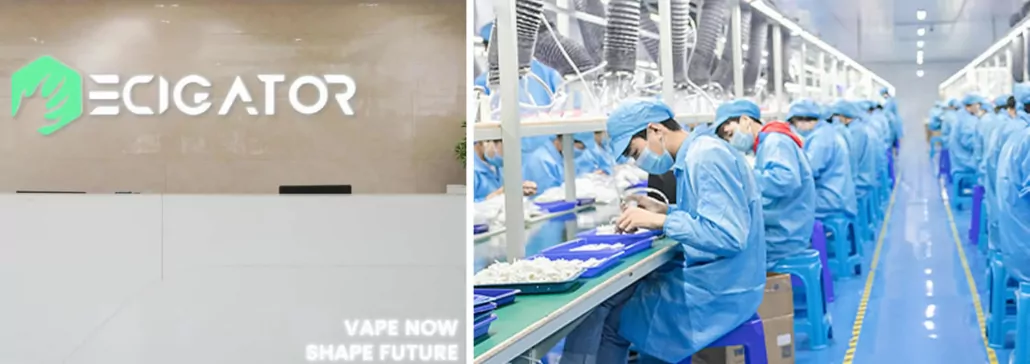
ECIGATOR
Ecigator is one of the well-known vape brands spun off from FM Technology Co., Ltd, it’s an ISO-certified disposable vape manufacturer for OEMs, ODMs, and OBM since 2010. The founder team comes from top firms with more than 10 years of experience in the vaping industry and has devoted thousands of hours to providing users with a better and better experience.
Enforcement and Penalties
Michigan employs a multi-layered enforcement approach involving state agencies and local authorities. The Michigan Department of Health and Human Services (MDHHS) Tobacco Section provides oversight for age restrictions and coordinates with Michigan’s 45 local health departments. The Michigan Attorney General’s Office has concurrent enforcement power to investigate violations. The FDA’s Center for Tobacco Products also conducts its own compliance checks, with reports indicating that 656 Michigan retailers failed federal undercover buy inspections for underage sales during 2024.
Penalties for retailers selling to minors under the current Youth Tobacco Act are classified as misdemeanors, with fines escalating from up to $100 for a first offense to up to $2,500 for a third or subsequent offense. The proposed licensing legislation (SB 651-654) would establish a more severe civil penalty structure, with fines up to $1,500 for a first violation and license revocation for a fourth violation within 36 months.
Conclusion
Michigan’s vaping laws in 2025 reflect a state at a regulatory crossroads. While it has firmly established a 21+ age limit and implemented a significant new wholesale tax, its approach to public use and product flavors remains less restrictive at the state level compared to some other states. The lack of a statewide indoor vaping ban places the onus on local municipalities and individual businesses to set their own policies, creating a varied landscape for consumers. Similarly, the absence of a current statewide flavor ban means many products that are restricted elsewhere remain available, though this is a subject of intense and ongoing legislative debate.
The most significant potential changes on the horizon are the proposed comprehensive retailer licensing system and a renewed push for flavor bans or restrictions tied to FDA authorization. For consumers, retailers, and manufacturers, this means the regulatory environment is likely to continue evolving. Staying informed about both existing state laws and the progress of proposed legislation is essential for navigating the complexities of vaping in Michigan.
References
- Michigan Department of Health and Human Services (MDHHS) – E-Cigarettes
- Michigan LARA – MRA Emergency Rules Require New Vaping Tests (Nov 2019)
- Ecigator News – Michigan Proposes Vape Tax And Flavor Ban
- District Health Department No. 2 – FAQ Michigan Smoke-Free Law
- MDHHS – Majority of Michigan K-12 public school districts have comprehensive tobacco-free policies (Aug 2023)
- MDHHS – Michigan Tobacco 21 Talking Points (PDF)
- Michigan Compiled Laws – Section 722.642 (Youth Tobacco Act – Penalties)
FAQs
-
What is the legal age to buy or possess vaping products in Michigan?
Michigan rigidly enforces a minimum legal sales age of 21 for all tobacco and vapor products. This “Tobacco 21” standard aligns the state with federal legislation.
-
Is vaping prohibited in all public places in Michigan under state law?
No, Michigan’s statewide Smoke-Free Indoor Air Law does NOT explicitly include vaping products, meaning there is no comprehensive statewide ban automatically prohibiting vaping in all places where smoking is banned. However, vaping is prohibited in specific sensitive locations like child care centers, Third Judicial Circuit Court facilities, streetcars, and public schools.
-
Are flavored vaping products currently banned in Michigan?
As of 2025, there is no statewide ban on the sale of flavored vaping products in Michigan. An emergency ban implemented in 2019 was later blocked and expired. However, new legislative proposals seeking a flavor ban continue to be introduced, and Governor Whitmer has proposed restrictions tied to FDA authorization.
-
Do I need a special state license to sell vaping products in Michigan?
Currently, Michigan does not require a specialized state-level retail license specifically for businesses selling only vaping products. Retailers typically operate under standard business registrations and sales tax permits. However, a package of bills introduced in the 2024-2025 legislative session seeks to establish a comprehensive licensing system for vape retailers.
-
How are vaping products taxed in Michigan?
Effective October 1, 2024, Michigan established a 57% wholesale tax on electronic smoking devices and vapor products containing nicotine. Previously, these products were only subject to the standard 6% Michigan sales tax.
- HHC Vapes: What Are They & Are They Safe? - July 31, 2025
- Cannabis and Vape Shop Workers Rank Happiest in Nation - July 31, 2025
- Richmond, VA, Restricts New Vape & Tobacco Shop Locations - July 31, 2025

